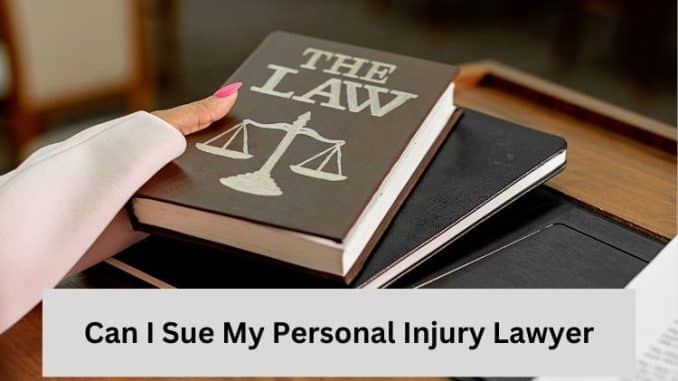
When you hire a personal injury lawyer, the anticipation is that they’ll competently represent your interests. However, situations may arise where you feel dissatisfied with their services. The question that often arises from attorney-client relationship breaks down is can I sue my personal injury lawyer? The answer is yes, under certain circumstances.
Can I Sue My Personal Injury Lawyer?
There are many reasons that could warrant you suing your personal injury lawyer and here are a few of them.
1. Breach of Fiduciary Duty
One of the primary reasons clients consider suing their personal injury lawyer is for breach of fiduciary duty. Lawyers owe their clients a duty of loyalty, care, and confidentiality. If your lawyer acts in a way that puts their interest before yours, fails to adequately represent you, or discloses your confidential information, they might have breached their fiduciary duty.
2. Professional Negligence
Just like doctors can be held accountable for medical malpractice, lawyers can be sued for professional negligence. If your attorney failed to meet the standard of care, skill, and diligence commonly provided by attorneys in similar situations, they may be considered negligent. Examples include missing important deadlines, failing to present critical evidence, or improperly advising a client.
3. Misappropriation of Funds
It is not uncommon for personal injury lawyers to handle settlements on behalf of their clients. If your attorney wrongly uses these funds or fails to disburse your share of the settlement, it is a serious ethical violation known as misappropriation of funds. Clients in such situations have the right to sue to recover their money.
4. Conflict of Interest
Lawyers are required to put their client’s interests first. If there’s a situation where your attorney may have a personal interest that conflicts with yours, and they do not disclose or adequately address it, this could be a conflict of interest. Such conflicts can jeopardize the fairness of your representation.
Steps to Take Before Suing Your Personal Injury Lawyer
- Open a Line of Communication: Before resorting to legal action, discuss your concerns directly with your lawyer. Misunderstandings can occur, and it’s possible they may be willing to rectify the situation.
- Seek a Second Opinion: If you believe your case was mishandled, consult another attorney. They can provide insight into whether your concerns are valid and if pursuing a lawsuit is in your best interest.
- File a Complaint: Most states have a governing body or bar association that oversees attorney conduct. If you believe your lawyer acted unethically, you can file a formal complaint. This body can investigate the matter and may impose disciplinary actions if necessary.
- Document Everything: If you decide to pursue legal action, documentation will be crucial. Keep all correspondence, agreements, and other paperwork related to your case.
Conclusion Can I Sue My Personal Injury Lawyer?
While the attorney-client relationship is built on trust, there are instances where lawyers may not act in their client’s best interest. Understanding the grounds on which you can sue your personal injury lawyer is crucial.
Always consider all available options and consult with another legal professional before taking steps toward litigation. Remember, ensuring justice and fair representation is not just a right, but a foundational pillar of the legal system.
Leave a Reply